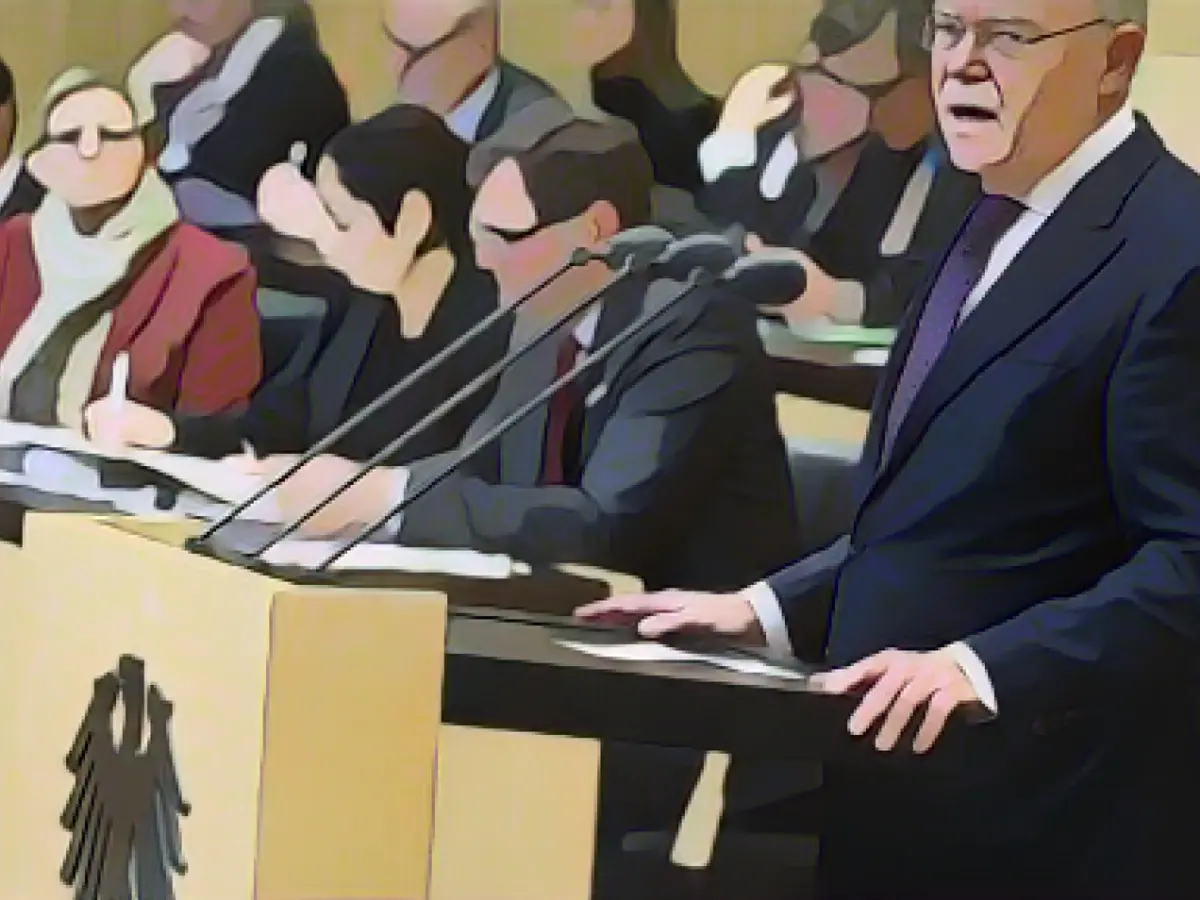PM Weil Slams Federal Government Over Budget Ruling Chaos
Lower Saxony's leading politician, Stephan Weil, has lashed out at the federal government for their apparent lack of planning following the Constitutional Court's controversial budget ruling. In an interview with German Press Agency, Weil, the minister president of SPD, questioned the Federal Ministry of Finance's inability to propose a contingency plan, terming it a "revenge."
"I'm still at a loss as to why there wasn't a contingency plan B," Weil shared. "This is reaping its consequences now," he added. The ruling, which declared the reallocation of 60 billion euros in the 2021 federal budget invalid, has sparked widespread confusion and uncertainty amidst rising public concern.
The budget's initial purpose was to serve as a coronavirus loan. However, subsequent plans included channeling the funds towards climate protection investments and modernizing the economy. Weil took this opportunity to advocate for a comprehensive revision of the debt brake, citing the limitations it imposes on long-term investments which often rely on borrowed capital.
"Climate protection investments and modernization projects seldom realize their returns within a short time. As a result, it is customary for companies and individuals alike to utilize borrowed capital. However, the debt brake does not extend this favor to the federal government," Weil explained.
The controversial debt brake, which has been a topic of debate, binds new debt to a ceiling of 0.35% of annual economic output. In 2022, this limit amounted to 12.5 billion euros. Weil's call for a reform in this context, effectively challenges the public's adherence to strict fiscal regulations during times of economic crisis and unprecedented national situations.
Further Reading:
- Stephan Weil, the minister president of Lower Saxony, criticized the federal government for their lack of a contingency plan upon hearing the Constitutional Court's ruling on the fiscal policy, describing it as a consequence of the Ministry of Finance's oversight.
- The German Press Agency interviewed Weil in Hanover, where he expressed his concern about the Ministry of Finance's failure to prepare a contingency plan B despite the perceived risks.
- The Constitutional Court declared the 60 billion euro reallocation in the 2021 federal budget unconstitutional, ruling that the funds had originally been designated for coronavirus relief but were subsequently intended for climate protection investments and economic modernization efforts.
- Weil argued that the rigid debt brake mechanism, which stipulates that new debt should not surpass 0.35% of annual economic output, did not acknowledge the need for borrowed capital to fund long-term investments in critical areas.
- The controversy surrounding the debt brake's limitations and its impact on investments propelled Weil to advocate for fundamental reforms, highlighting the necessity to explore more inclusive and flexible policy-making.
- The Constitutional Court's ruling, which notably contributed to the coalition's dissolution, underscores the need for a more adaptable fiscal policy that balances financial stability with critical investments in sectors like climate, defense, and infrastructure.
Source:
To reiterate, Weil's criticism of the federal government can be traced back to the Constitutional Court's ruling, which exposed their apparent lack of preparedness and hindered the government's ability to respond effectively to subsequent challenges.








